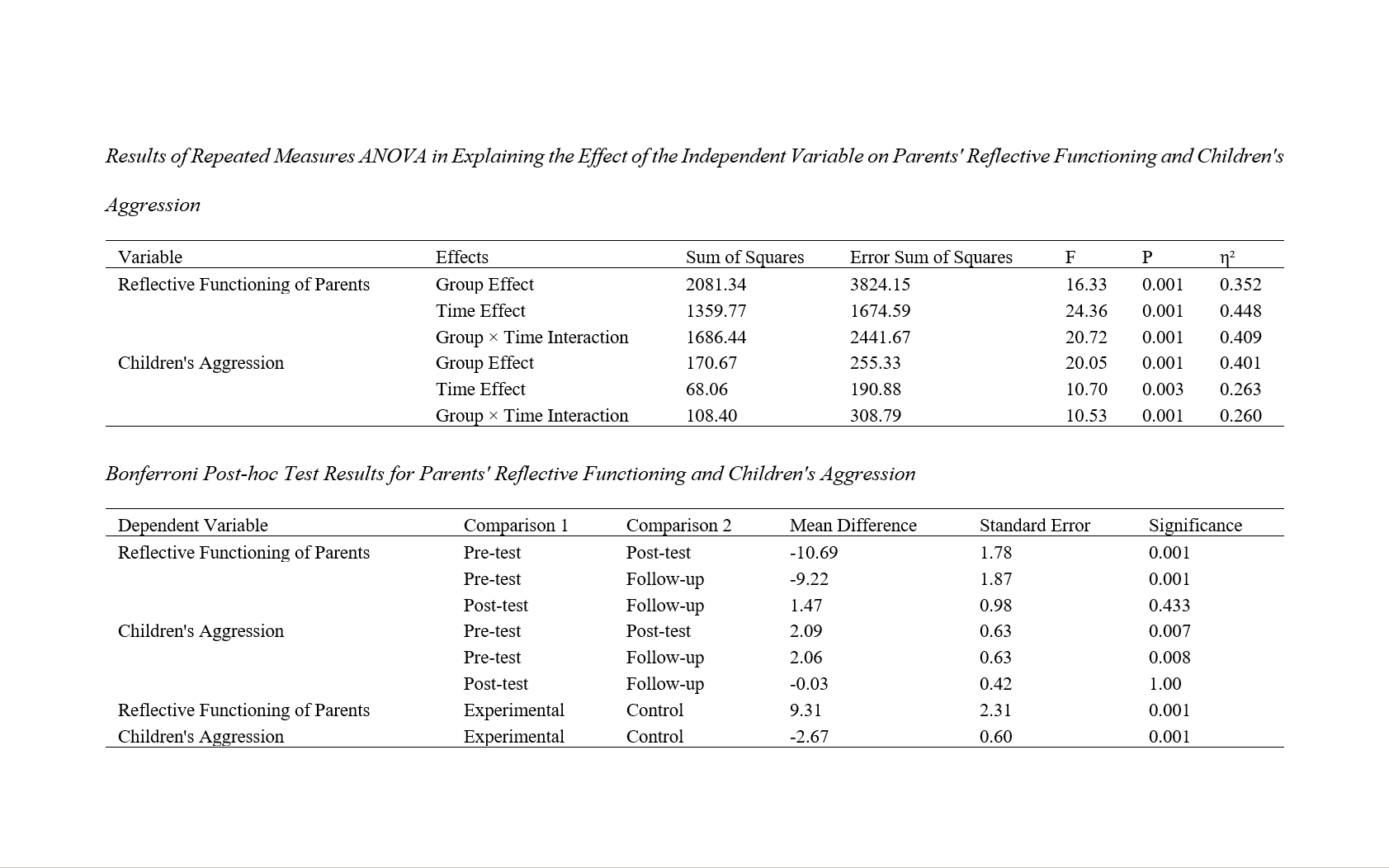Effectiveness of Mentalization-Based Training and Positive Thinking for Parents of Children with Autism on Their Reflective Functioning and Aggression in Their Children
Keywords:
Mentalization-Based Training, Positive Thinking, Autism, Reflective Functioning, AggressionAbstract
Objective: This study aimed to determine the effectiveness of mentalization-based training and positive thinking for parents of children with autism on their reflective functioning and their children's aggression.
Methods: This quasi-experimental study employed a pretest-posttest design with a control group and a three-month follow-up. The statistical population included all parents of children with autism spectrum disorder (ASD) enrolled in day centers for education and rehabilitation of individuals with ASD in Tehran during the 2022-2023 academic year, and their children. A total of 32 parent-child pairs were selected using purposive sampling and were randomly assigned to either the experimental group (16 parents) or the control group (16 parents). Data collection tools for parents included the Reflective Functioning Questionnaire (Fonagy, 2016), and for children, the Achenbach Child Behavior Checklist Aggression Scale (2001) Parent Form. Initially, a pretest was administered to both groups, and the Aggression Scale was completed by the parents for their children. The mentalization-based and positive thinking training package (Fonagy) was then conducted in 12 sessions of 120 minutes each for the experimental group. Subsequently, a posttest was administered to both groups, and the Reflective Functioning Questionnaire and Positive Beliefs Questionnaire were completed by the mothers, while the Aggression Scale was again completed by the parents for their children. A follow-up phase occurred three months later. Data analysis was conducted using repeated measures analysis of variance.
Findings: The results indicated that the impact of mentalization-based and positive thinking training on the components of reflective functioning (F = 14.35) and aggression (F = 7.17) in children was significant (P < 0.01), and this effect persisted through the follow-up phase.
Conclusion: Given the results, it appears that mentalization-based and positive thinking training, by enhancing reflection on mental states, emotional regulation, and the ability to enjoy pleasant events, provides a suitable context for reflective functioning. This, in turn, leads to a reduction in aggression in children with autism.
Downloads

Downloads
Additional Files
Published
Submitted
Revised
Accepted
Issue
Section
License

This work is licensed under a Creative Commons Attribution-NonCommercial 4.0 International License.




















